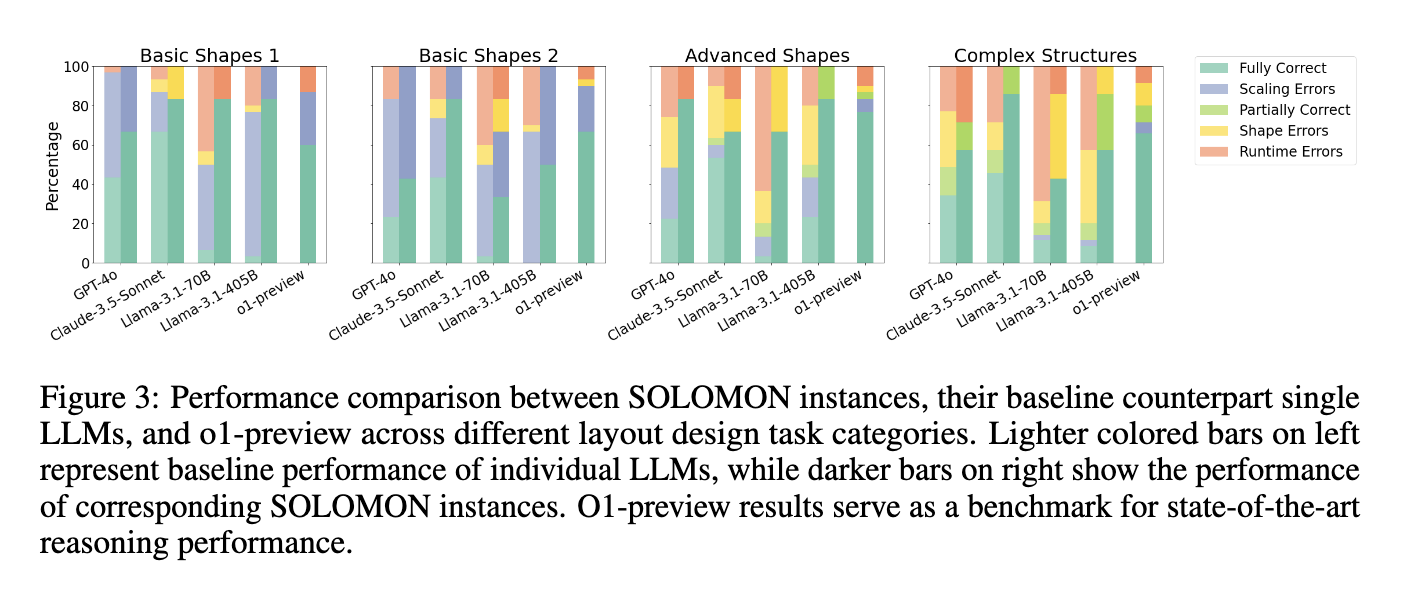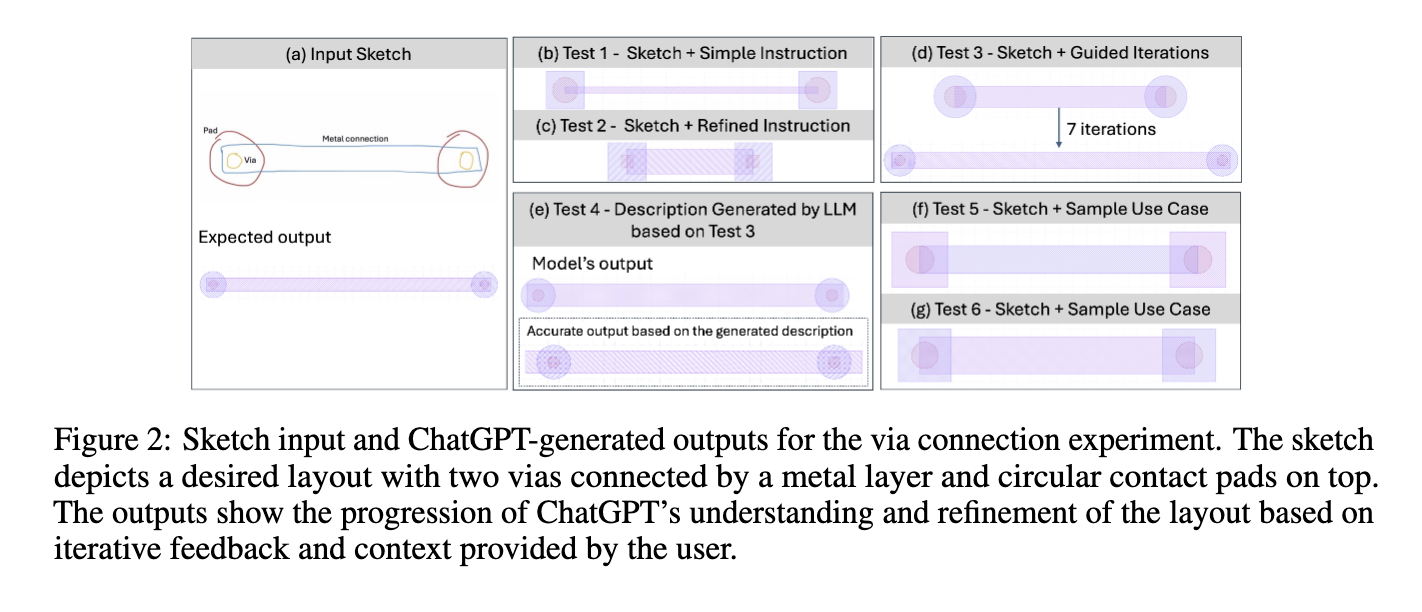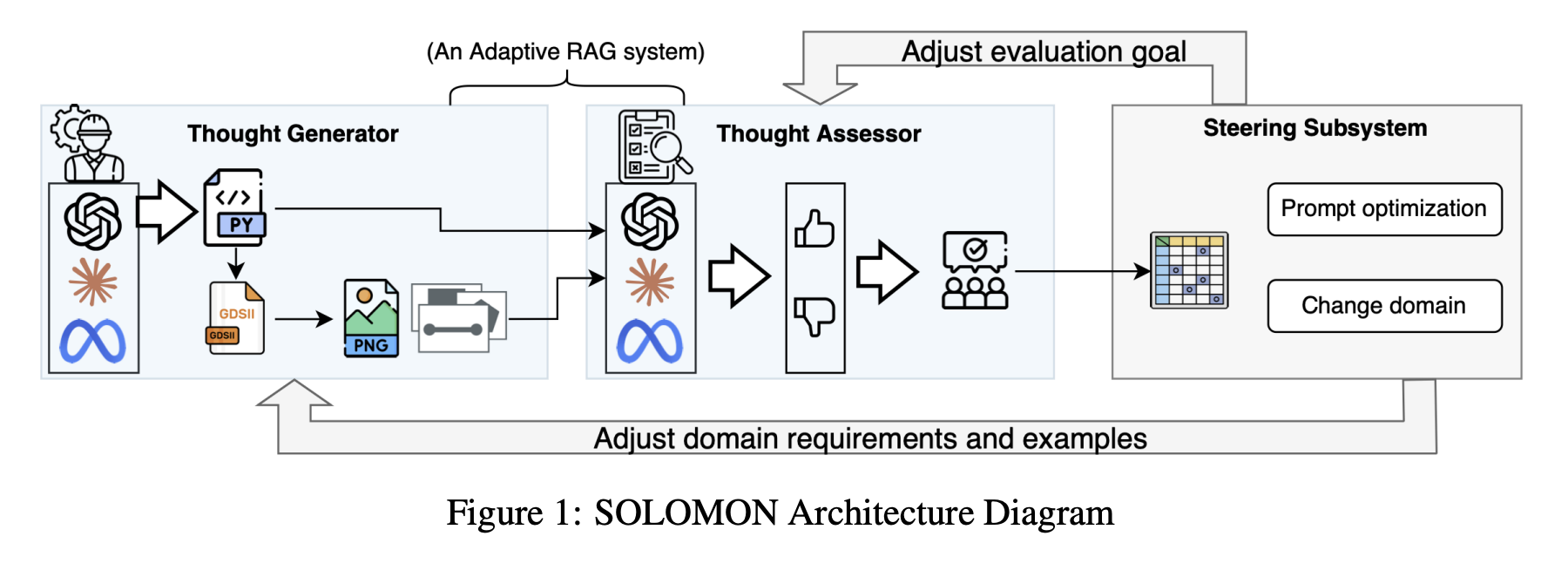Adaptation of large language models to specialized domains remains challenging, especially in fields that require spatial reasoning and structured problem solving, although specialized in complex reasoning. Semiconductor Layout Design is a good example where AI tools have to interpret geometric restrictions and ensure accurate component location. Researchers develop advanced AI architectures to improve LLMS ‘ability to treat and apply domain-specific knowledge effectively.
An important limitation of general LLMs is their inability to convert theoretical knowledge into practical solutions. Although these models can precisely define technical concepts, they often fail when solving tasks in the real world that require spatial reasoning and structured logic. In the design of the semiconductor layout, AI must go beyond text -based knowledge to ensure accurate location of VIA, metal layer and circulatory components. Without precise geometric conditions, layout design may be unsuccessful due to incorrect adjustment or incorrect distance. Current models often require multiple rounds of human correction, making their implementation ineffective.
Several approaches have been developed to improve LLMS ‘adaptability to domain -specific applications. Fine tuning involves educating LLMs with domain -specific data, but this process is time -consuming and requires significant calculation resources. Download-Augmented Generation (RAG) derives external knowledge to guide LLM output, but it does not fully address challenges related to structured problem solving. In-Context learning helps guide LLM Reasoning by providing task-specific examples, yet it does not overcome spatial reasoning restrictions. These methods offer step -by -step improvements, but do not provide a comprehensive solution for applications that require geometric logic.
Researchers at IBM TJ Watson Research Center and MIT-IBM Watson AI Lab introduced Solomon, a neuro-inspired LLM Reasoning Network, to improve domain-specific adaptability. Unlike conventional approaches, Solomon uses a multi-agent reasoning system that dynamically deals with spatial limitations and geometric conditions. The framework integrates thought assessment mechanisms to refine output iteratively and improve problem solving accuracy. Solomon utilizes quick technical techniques to guide LLM-generated solutions to adapt to Semiconductor Layout tasks with minimal retraining.

Solomon’s architecture is inspired by neuroscience and incorporates the free energy principle that optimizes reasoning by reducing discrepancies between expected and observed results. The frame consists of three primary components: Thought generators, thought assessers and a operating system. Tank generators use different LLMs to produce more reasoning pathways, ensuring a wide range of solutions for complex tasks. The thought assessment evaluates these outputs and chooses the most logical and structured approach. The operating system allows researchers to change targets dynamically, enabling more precise domain adaptation. Unlike fine tuning, this architecture does not require continuous retraining, making it more effective for specialized applications.
Researchers performed experiments on 25 semiconductor layout tasks to evaluate Solomon’s effectiveness. The framework was compared to five baseline LLMs, including GPT-4O, Claude-3.5-SONNET and Llama-3 models. Each task assessed the models’ ability to generate geometric structures while maintaining spatial accuracy. Solomon demonstrated improvements in the reduction of runtime errors and scaling of inaccuracies. The framework exhibited better spatial reasoning functions, improved the placement of the placement and reduction of errors in generated design. Solomon deposits also matched or also exceeded the performance of O1 advance views in several test categories, where the claude-based solomon performed strongly in certain complex tasks.

An important advantage of Solomon is its ability to correct logical discrepancies and arithmetic errors in geometric designs. The thought assessment refined continuously generated layouts by analyzing past iterations and mitigating common hallucination problems in traditional LLMs. The system effectively reduces erroneous interpretations and improves the reliability of AI-generated designs. Solomon synchronizes reasoning across multiple LLMs when presented with ambiguous layout specifications, ensuring uniform and precise output. By incorporating hierarchical assessment mechanisms, the framework improves significant AI-driven design accuracy.
This research highlights the importance of improving LLM resonance functions rather than increasing the size of the model. Solomon offers a structured and effective approach to using AI to domain -specific problem solving, especially in the design of the semiconductor layout. Future research will focus on expanding the framework to other technical applications, refinement of multimodal reasoning features and introducing iterative learning mechanisms to improve the AI decision tagging. The introduction of Solomon represents a significant progress in making AI-driven tools more precise, adaptive and effective to industrial challenges in the real world.
Check out the paper. All credit for this research goes to the researchers in this project. You are also welcome to follow us on Twitter And don’t forget to join our 75k+ ml subbreddit.
🚨 Recommended Open Source AI platform: ‘Intellagent is an open source multi-agent framework for evaluation of complex conversation-a-system‘ (Promoted)
Nikhil is an internal consultant at MarkTechpost. He is pursuing an integrated double degree in materials at the Indian Institute of Technology, Kharagpur. Nikhil is an AI/ML enthusiast who always examines applications in fields such as biomaterials and biomedical science. With a strong background in material science, he explores new progress and creates opportunities to contribute.
✅ [Recommended] Join our Telegram -Canal
